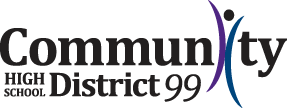Post-Secondary Education Resources
With the passage of the Higher Education Opportunity Act Reauthorization in August of 2008, students with disabilities have greater post-secondary access than ever before. Students with developmental disabilities will qualify for financial aid in the form of Pell grants, Supplemental Educational Opportunity Grants, and College Work Study Programs as long as they meet the requirements and are admitted to qualifying programs and maintain satisfactory progress attending at least half-time. For details about qualification requirements, please see the Policy Brief -The Higher Education Opportunity Act of 2008: An Overview available on the Think College! Website.
Can support from either the Adult DD waiver (Home-Based) or DHS/DRS Vocational Rehabilitation be used for post secondary education?
Currently, funding from DHS-DRS Vocational Rehabilitation can, in some instances, be used to support post-secondary education leading to employment. DRS will first evaluate the likelihood of an individual’s success in both degree and non-degree programs before allowing funding to be used in this manner. For more information, please go to the Administrative Rules section of the DRS website and look under Section 590 – Services. DDD waiver funding cannot be used for post-secondary education at the current time.
Who can help youth with DD interested in post-secondary education?
If your child with a disability is interested in post-secondary education, be sure to include this goal in the transition plan included in the IEP. It will be helpful to work with high school staff members who are familiar with college requirements and may have a relationship with local community college staff. Students frequently include exploration of postsecondary opportunities, requirements and even incorporate classes at the community college in their transition plans.
For more information on post-secondary education options, see the following resources:
Going to College - A resource for teens with disabilities
Think College! College options for people with intellectual disabilities
Follow this link to view "program profiles" for five of the eight known postsecondary education (PSE) programs for students with intellectual/developmental disabilities (I/DD) in Illinois.
CURRENT ACADEMIC RESOURCES
Achieve Degree
An online bachelor degree program through Sage University. The Achieve Degree is a fully online Bachelor’s of Liberal Studies. This four-year program is divided into 6 terms per year for people with developmental disabilities.
Book Share
The world’s largest online library of accessible reading materials for people with print disabilities.
College of Dupage
To meet an identified community need, College of DuPage has created the Vocational Skills
Program, offering courses to students challenged with mild to moderate cognitive impairment.
JJB Educational Consulting, Inc.
Post-secondary options for students with learning disabilities and AD/HD can be confusing and overwhelming. JJB Educational Consulting helps families make good choices about future educational placements.
Disability.Gov
Scholarships for people with a disability. You can search by disability type or providers.
Elmhurst Life Skills Academy
The Elmhurst Learning and Success Academy (ELSA) is a four-year program that offers a full-time, post-secondary educational experience to young adults with developmental disabilities.
Goodwill Foundation
Free online learning opportunities to anyone who wants to improve the technology, literacy, and math skills necessary for them to be successful in both work and life.
Guild Scholar Award Program
An annual scholarship program for college bound high school students who are legally blind.
Harper College
Harper College Continuing Education offers the two-year Career Skills Institute (CSI) Program for young adults with mild intellectual disabilities to help them gain basic academic and employability skills. To supplment CSI, the Harper CE Personal Enrichment program offers classes in cooking and other skills that are both fun and practical and tailored for the CSI student.
Heartland Academy for Learning Opportunities (HALO)
HALO is designed to offer a supportive and inclusive college experience for adults with intellectual disabilities in order to enhance quality of life and build work readiness skills. It is a two-year, noncredit program offering two one-year certificates of completion, Level 1 and Level 2 Certificates.
IXL
Resource for practicing math by grade level, with excellent visuals.
Leadership Education in Neurodevelopmental and Related Disabilities (LEND)
LEND provides long-term, graduate level interdisciplinary training designed to improve the health of individuals with disabilities.
Lewis & Clark Community College: College for Life Program
For those students with disabilities who have had few inclusive experiences in high school or who choose not to seek a college credential, the College for Life program not only provides courses that continue the educational experience, but it also provides inclusive social growth opportunities on a college campus.
Lyon's Township High School
Lyon's Township HS offers classes for students with special needs (i.e., drama, reading, and cooking).
Options for College Success
Options for College Success encourages learning-challenged post secondary students to develop the skills, the confidence, and the courage necessary to transition into living independently and working productively. They offer both Residential and non-Residential services and serve students between 18-30.
P.A.C.E. at National Louis University
Path to Academics, Community and Employment (P.A.C.E) is a three-year, post-secondary certificate program designed to meet the transitional needs for young adults with multiple intellectual, learning and developmental disabilities.
Shepherds College
Shepherds College is an accredited, three-year post-secondary school that assists young adults with intellectual disabilities transition from school and home to independent living.
The Cutting Edge
The Cutting Edge is an individualized approach to education and inclusion in college for students with intellectual developmental disabilities. These are individuals who have either traditionally not been able to meet the standard admissions criteria for college, or require additional supports in order to be successful in college. Edgewood College is the first four-year college in Wisconsin to offer such a program to students who have intellectual developmental disabilities.
